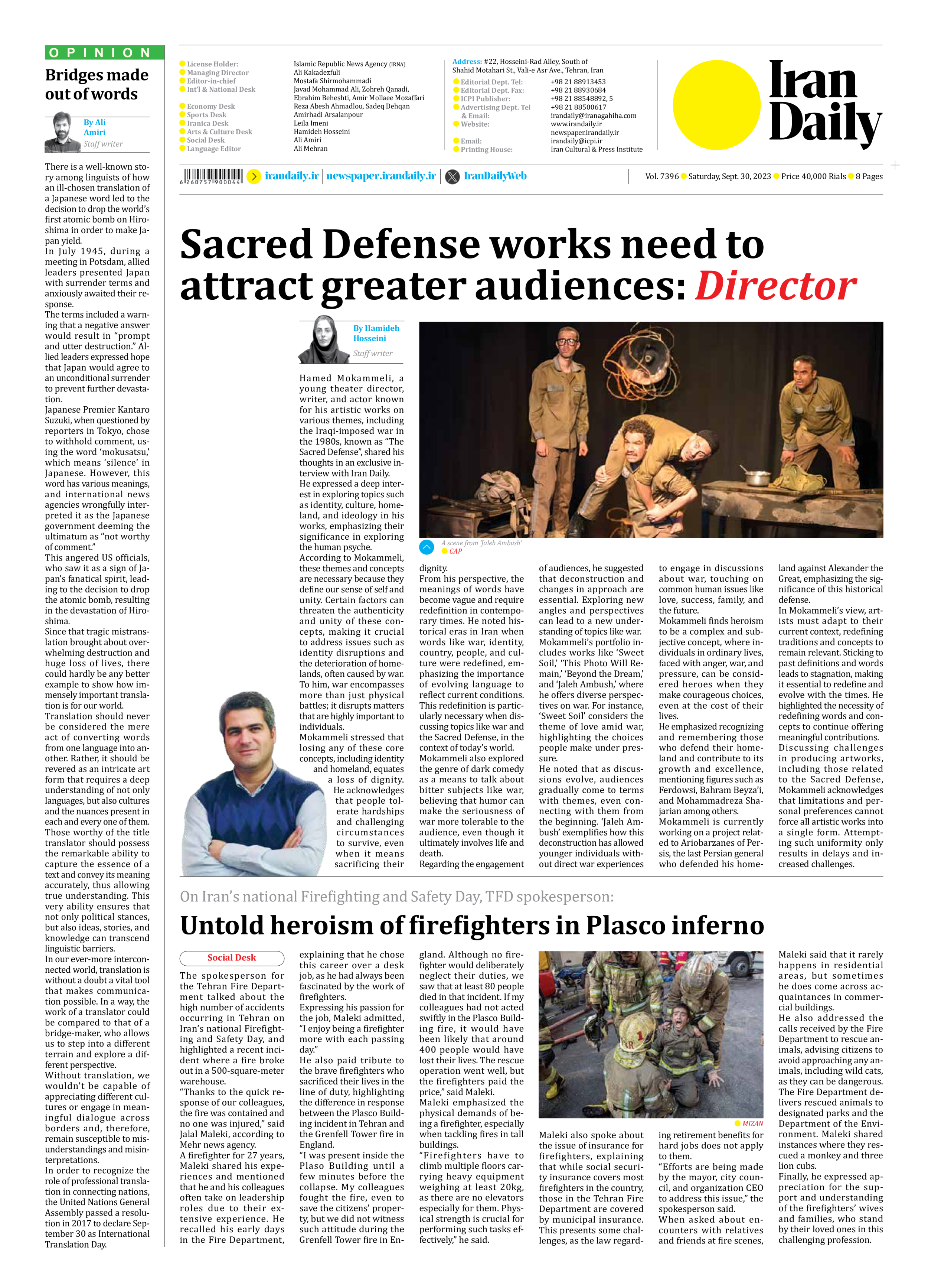
Bridges made out of words
By Ali Amiri
Staff writer
There is a well-known story among linguists of how an ill-chosen translation of a Japanese word led to the decision to drop the world’s first atomic bomb on Hiroshima in order to make Japan yield.
In July 1945, during a meeting in Potsdam, allied leaders presented Japan with surrender terms and anxiously awaited their response.
The terms included a warning that a negative answer would result in “prompt and utter destruction.” Allied leaders expressed hope that Japan would agree to an unconditional surrender to prevent further devastation.
Japanese Premier Kantaro Suzuki, when questioned by reporters in Tokyo, chose to withhold comment, using the word ‘mokusatsu,’ which means ‘silence’ in Japanese. However, this word has various meanings, and international news agencies wrongfully interpreted it as the Japanese government deeming the ultimatum as “not worthy of comment.”
This angered US officials, who saw it as a sign of Japan’s fanatical spirit, leading to the decision to drop the atomic bomb, resulting in the devastation of Hiroshima.
Since that tragic mistranslation brought about overwhelming destruction and huge loss of lives, there could hardly be any better example to show how immensely important translation is for our world.
Translation should never be considered the mere act of converting words from one language into another. Rather, it should be revered as an intricate art form that requires a deep understanding of not only languages, but also cultures and the nuances present in each and every one of them.
Those worthy of the title translator should possess the remarkable ability to capture the essence of a text and convey its meaning accurately, thus allowing true understanding. This very ability ensures that not only political stances, but also ideas, stories, and knowledge can transcend linguistic barriers.
In our ever-more interconnected world, translation is without a doubt a vital tool that makes communication possible. In a way, the work of a translator could be compared to that of a bridge-maker, who allows us to step into a different terrain and explore a different perspective.
Without translation, we wouldn’t be capable of appreciating different cultures or engage in meaningful dialogue across borders and, therefore, remain susceptible to misunderstandings and misinterpretations.
In order to recognize the role of professional translation in connecting nations, the United Nations General Assembly passed a resolution in 2017 to declare September 30 as International Translation Day.







